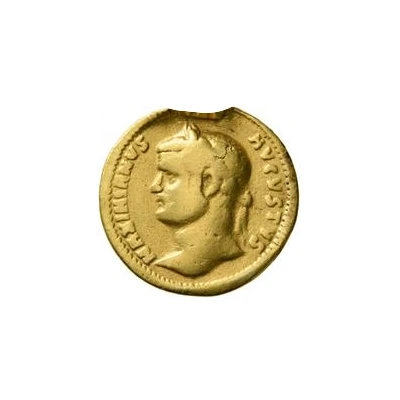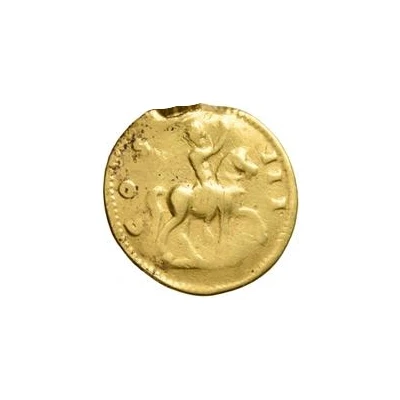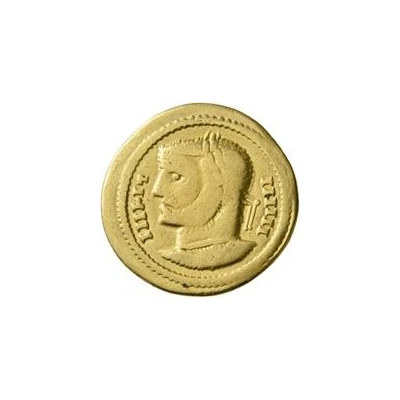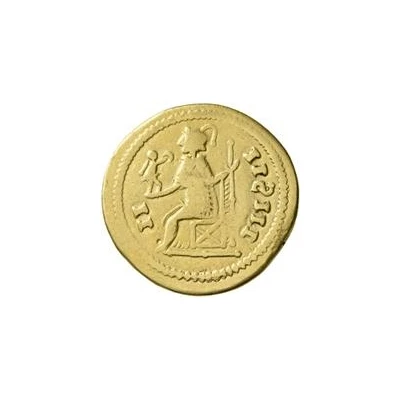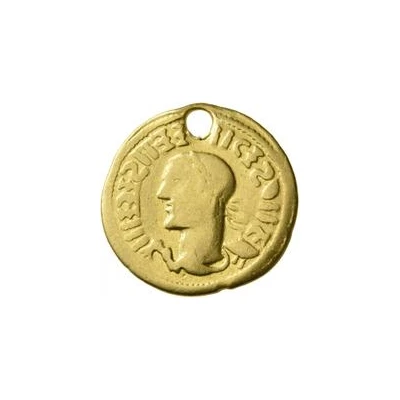
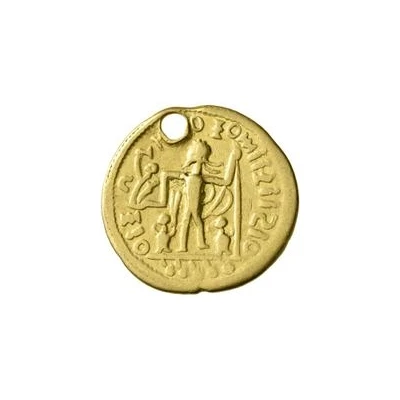

© Leu Numismatik
1 Aureus - Imitating Diocletian, 284-305, and Maximian,
| Gold | 6.03 g | 21 mm |
| Issuer | Uncertain Germanic tribes |
|---|---|
| Type | Non-circulating coin |
| Years | 285-325 |
| Value | 1 Aureus |
| Currency | Aureus (circa 150-325) |
| Composition | Gold |
| Weight | 6.03 g |
| Diameter | 21 mm |
| Shape | Round (irregular) |
| Technique | Hammered |
| Demonetized | Yes |
| Updated | 2024-10-04 |
| Numista | N#189024 |
|---|---|
| Rarity index | 100% |
Reverse
Person standing while facing left holding Victory presenting wreath in his right hand and scepter in his left, all with two small figures raising hands on either side and surrounded by legend.
Script: Latin
Lettering:
OIEOHOEOEIRIRIISIO
AAAO
Edge
Plain
Comment
The two figures are a unique addition by the Barbarian engravers, probably reflecting to joint rule of Diocletian, 284-305, and Maximian, 285-305.The exact lettering of the surrounding legend may vary.
The vast majority of Aureus and Quinarius pieces from the Uncertain Germanic tribes are either holed or have a suspension loop attached. This implies that, while these were coins, these imitations were mainly meant for jewelry rather than to be spent.
Interesting fact
One interesting fact about this coin is that it was created by the Uncertain Germanic tribes, which is a rare and unique aspect of its history. The coin's design and production were likely influenced by the cultural and artistic traditions of these tribes, making it a valuable piece for collectors and historians interested in ancient Germanic culture. Additionally, the fact that it is made of gold and weighs 6.03 grams adds to its value and rarity, making it a highly sought-after piece among collectors.
